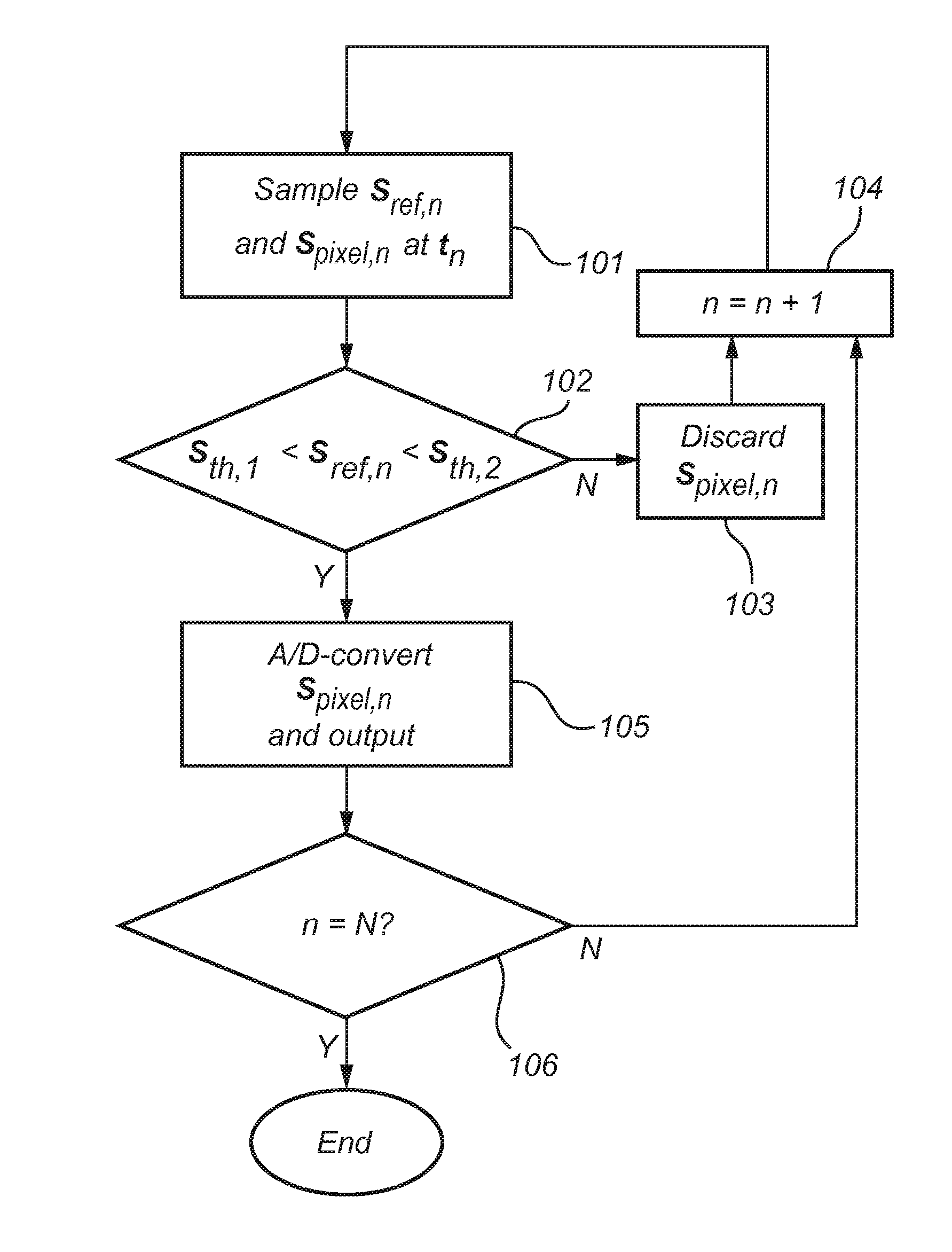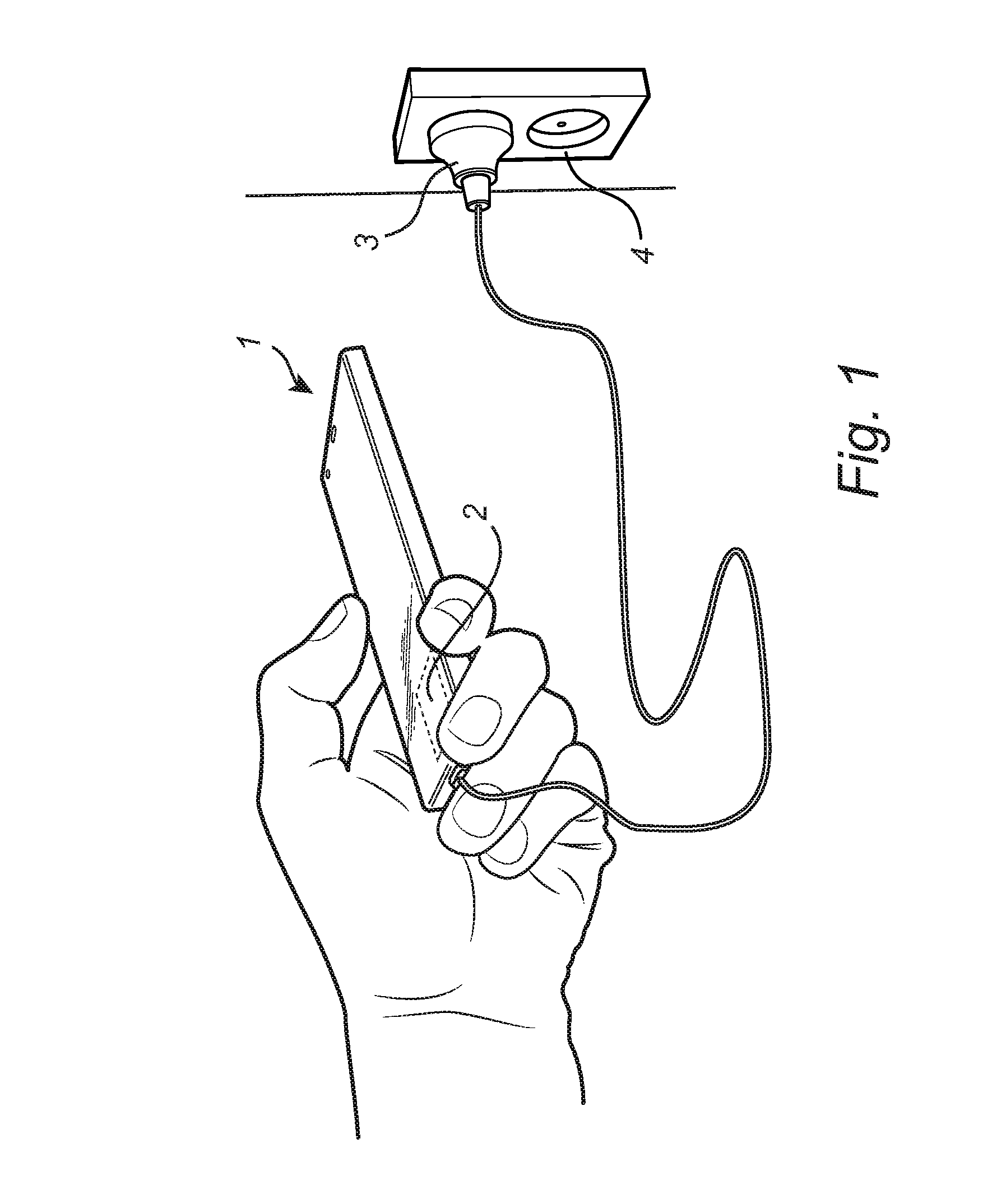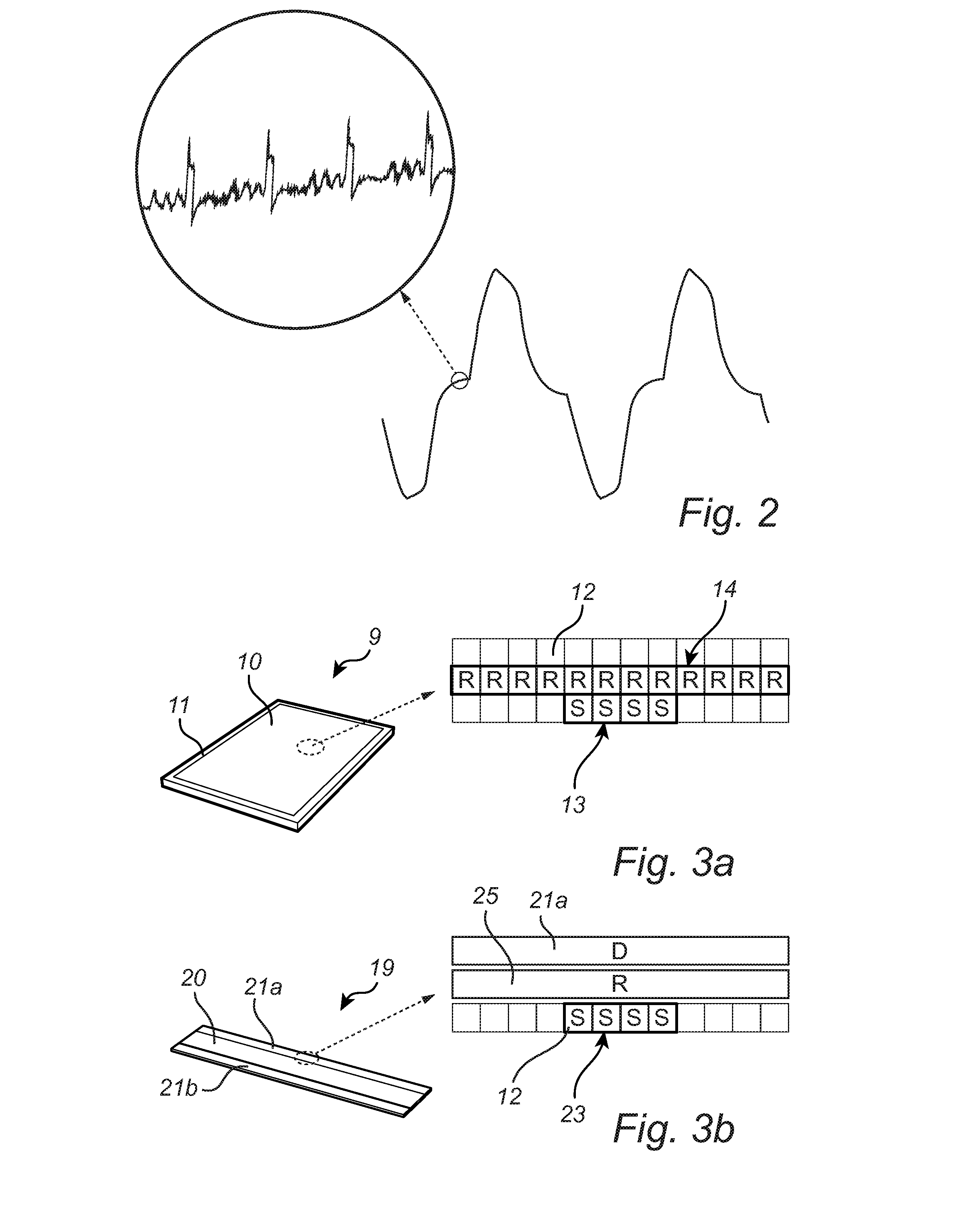Fingerprint sensing system and method
a fingerprint and sensing technology, applied in the field of fingerprint sensing systems, can solve the problems of pixel signal value not being correctly reflected, requiring a relatively large capacitance, and wet fingers and/or external interference, etc., to achieve the effect of improving fingerprint sensing and improving fingerprint sensing
- Summary
- Abstract
- Description
- Claims
- Application Information
AI Technical Summary
Benefits of technology
Problems solved by technology
Method used
Image
Examples
first embodiment
[0089]the method according to the present invention will now be described with reference to the flow-cart in FIG. 5 and the representative diagrams in FIGS. 6a-c. In a first step 101, the reference signal Sref and the pixel signal Spixel are sampled to provide the n:th sample Sref,n of the reference signal (the reference signal value) and the n:th sample Spixel,n of the pixel signal (the pixel signal value) at the n:th sampling time tn. The respective samples may advantageously be acquired using so-called correlated double sampling, which may be used to remove any effects of the low frequency component of the common-mode noise (see FIG. 2). Correlated double sampling is, per se, well known to the skilled person, and correlated double sampling from sensing elements of a capacitive fingerprint sensor is described in detail in the above-mentioned document U.S. Pat. No. 7,864,992.
[0090]Referring now to FIGS. 6a-c, an exemplary sampling as carried out in the first step 101 will be descri...
second embodiment
[0099]the method according to the present invention will now be described with reference to the flow-cart in FIG. 7.
[0100]This second embodiment of the method according to the invention mainly differs from the above-described first embodiment in that a post-processing of the pixel signal values Spixel,n is carried out based on corresponding reference signal values Sref,n.
[0101]Accordingly, in a first step 201, a series of reference signal values Sref,n and a corresponding series of pixel signal values Spixel,n are sampled at sampling times t1-tN. The sampling of each reference signal value / pixel signal value may be carried out as described above with reference to FIG. 5 and FIGS. 6a-c.
[0102]In the next step 202, a series of modified pixel signal values is determined based on the series of pixel signal values Spixel,n and the corresponding series of reference signal values Sref,n.
[0103]Due to the averaging obtained using the reference sensing structure (14 in FIGS. 3a and 25 in FIG....
third embodiment
[0104]Finally, the method according to the present invention will now be described with reference to the flow-chart in FIG. 8 and the representative diagrams in FIGS. 9a-c.
[0105]The flow-chart in FIG. 8 concerns the acquisition of a single pixel signal value (or the simultaneous acquisition of pixel signals from several sensing elements).
[0106]In a first step 301, the pixel signal Spixel is sampled at a first sampling time tn,0 resulting in a first sample Spixel,n,0. Subsequently, in step 302, the pixel signal is sampled at a second sampling time tn,1 resulting in a second sample Spixel,n,1. Rather than there being a fixed time difference between the first sampling time and the second sampling time, the second sampling time is dependent on the value of the reference signal Sref.
[0107]Specifically, the reference signal Sref is compared with a threshold value Sref,th, and when the reference signal reaches the threshold value, the second sample of the pixel signal is taken.
[0108]This ...
PUM
 Login to View More
Login to View More Abstract
Description
Claims
Application Information
 Login to View More
Login to View More - R&D
- Intellectual Property
- Life Sciences
- Materials
- Tech Scout
- Unparalleled Data Quality
- Higher Quality Content
- 60% Fewer Hallucinations
Browse by: Latest US Patents, China's latest patents, Technical Efficacy Thesaurus, Application Domain, Technology Topic, Popular Technical Reports.
© 2025 PatSnap. All rights reserved.Legal|Privacy policy|Modern Slavery Act Transparency Statement|Sitemap|About US| Contact US: help@patsnap.com



